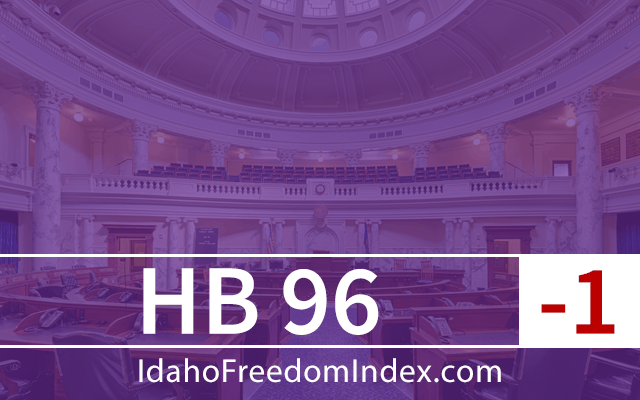


Bill description: HB 96 would change the formulas used for calculating the number of deer and elk tags each outfitter and guide receives, and it would set a minimum requirement for the tags set aside for their use.
Rating: -1
Does it increase government redistribution of wealth? Examples include the use of tax policy or other incentives to reward specific interest groups, businesses, politicians, or government employees with special favors or perks; transfer payments; and hiring additional government employees. Conversely, does it decrease government redistribution of wealth?
Under current law, up to 25 percent of the non-resident tags for hunting deer and elk are set aside exclusively for individuals who have agreed to hunt with an outfitter or guide licensed by the state of Idaho.
HB 96 would require the Idaho Fish and Game Commission to establish a minimum number of these set-aside tags. The number would be based on looking at the number of all elk and deer tags used throughout the state in the last two years and then using the highest. The final number would be 10 percent higher than that amount.
By designating a set number of hunting tags for licensed outfitters and guides, HB 96 would give this group of individuals preferential treatment over others. Requiring hunters to use the services of another private group is similar to the Individual Mandate of the Affordable Care Act, which required all Americans to contract with an insurance provider. When the government uses the force of law to require private citizens, whether resident or nonresidents, to enter into a contract, agreement, or business relationship with a select group of private entities, those private entities are the inevitable beneficiaries of the government policy—at the expense of others.
(-1)


